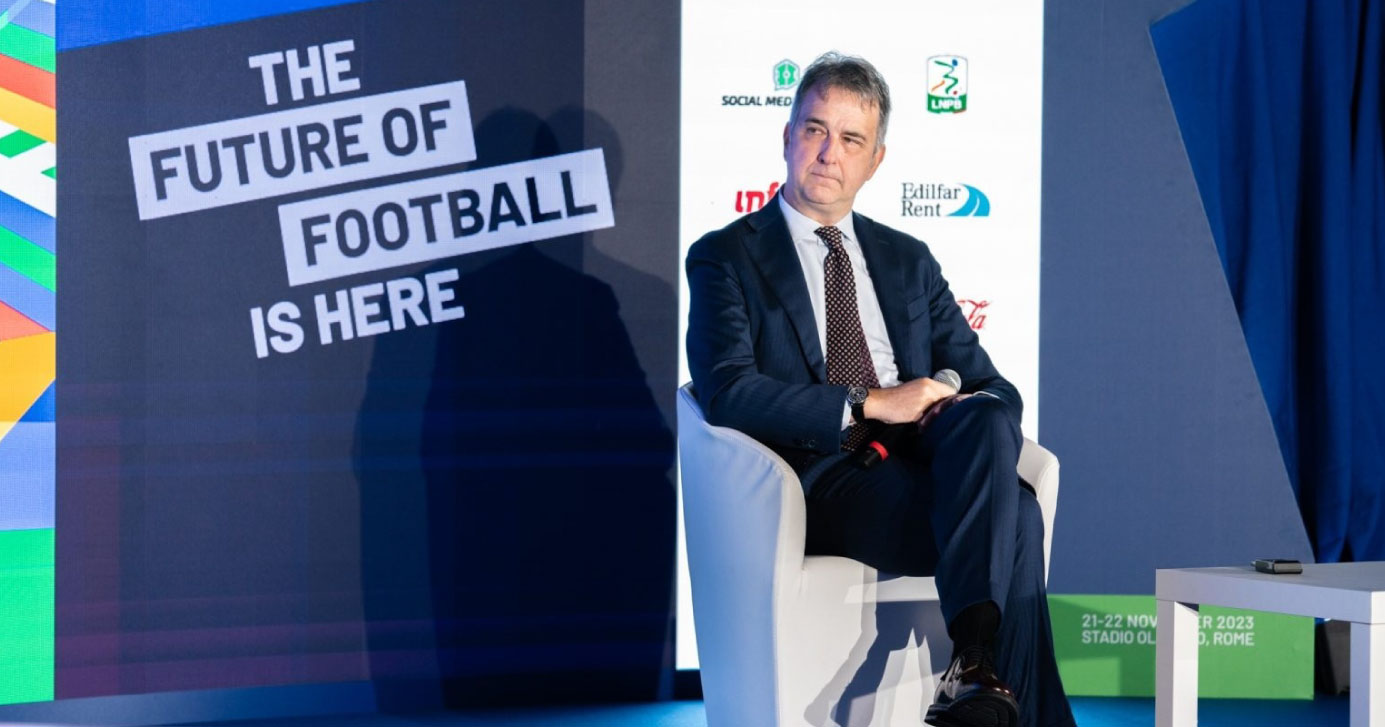
Sustainability will be at the heart of SFS24
This is an increasingly central theme for all major events, and we will try to explain why.
The recent edition of the European Championships, held in Germany, did not go as we had hoped.
As we know very well by now, Spalletti’s national team failed to express the game they wanted and stepped aside for an excellent Switzerland.
However, there is a fellow countryman who can absolutely consider EURO 2024 a success.
You may be wondering who that is, and the question is absolutely legitimate.
The reference is to Michele Uva.
Uefa’s ESG Policy
Michele Uva is currently the Director of Social & Environmental Sustainability at Uefa.
The governing body of European football has worked diligently over the past year to achieve an acceptable level of sustainability in its events.
To this end, a document specifically addressing ESG was published in July 2023, titled “Uefa Euro 2024 Environmental, Social, and Governance (ESG) Strategy.”
Regarding this, Uva stated in a recent interview with “Fortune Italia”:
“The 100 actions implemented focused on environmental sustainability, social sustainability, and governance, based on the ESG matrix that Uefa uses for all its events and which involved all stakeholders from the early stages of the process.”
The former director of CONI Servizi Spa then explained in detail the measures planned for last summer’s continental tournament:
“Everything was planned over two years (in the last period, we worked 20 hours a day) with an investment of 32 million euros, a coordination hub for actions in Frankfurt and Nyon, a sustainability manager for each of the 10 match venues, and 500 volunteers dedicated to accessibility for people with disabilities, protection of rights, and environmental issues.”
What Has Uefa Done?
The concept of sustainability has been approached by the European confederation in two different ways.
It was decided to emphasize environmental sustainability, while always keeping an eye on social sustainability and the key issue of human rights.
The initiatives included the mobility of fans and teams, and the management of emissions with a minimum reduction plan of 20%.
The infrastructures involved worked to minimize waste production.
Once the event was over, Uefa proceeded with the related reporting of emissions that it considers unavoidable.
To mitigate the negative impact of these emissions, a specific fund was created, the Climate Fund (for every ton of CO2 produced, 25 euros were allocated).
Some amateur football clubs active in Germany were able to benefit from the final amount collected afterwards.
The publication of the final report, which will provide an overview of the project, will take place at the end of October.
Uva also emphasized in the aforementioned interview that 81% of spectators used eco-friendly public transport to reach the stadiums, and highlighted that 20,200 tickets were sold to the differently abled public, while there were 38,000 unique accesses to audio-descriptive commentary for blind individuals.
Additionally, there was a substantial reduction in the percentage of air travel for teams during the tournament.
Compared to EURO 2016 in France, the figure dropped from 75% to 25%, with about 7 teams (Austria, Czech Republic, Hungary, Serbia, Slovakia, Switzerland, and Turkey) playing more than one match at the same venue.
Sustainability at the Heart of SFS
It is now clear that the ESG (Environmental, Social, and Governance) theme is of primary importance for all major events.
For this reason, this topic will be addressed with various industry experts at SFS24 at the Stadio Olimpico in Rome on November 19 and 20, 2024.
Among them: Chris Goodwin, ESG Manager of Chelsea; Helen Hughes, Sustainability Manager for Newcastle; Tom Harris, Sustainability Manager at Brighton; and finally, Jennifer Morris, Director of the City Football Leadership Institute.
We look forward to seeing you at SFS24.



